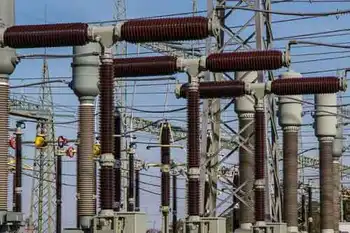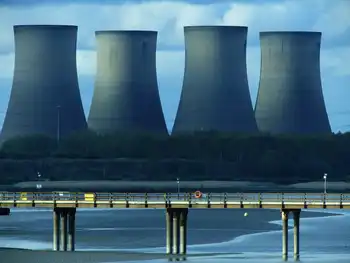SSE wins funding for UKÂ’s largest CCS project
By Industrial Info Resources
High Voltage Maintenance Training Online
Our customized live online or in‑person group training can be delivered to your staff at your location.

- Live Online
- 12 hours Instructor-led
- Group Training Available
The company has been awarded £6.3 million (US $9.4 million) by the Department of Energy and Climate Change (DECC), the Technology Strategy Board and Northern Way toward the construction of a 5-megawatt (MW) carbon-capture trial at Ferrybridge, the largest proposed CCS pilot in the UK. SSE officially entered the CCS race last November with partner Doosan Babcock Energy Limited and Swedish energy giant Vattenfall AB.
The two-year trial project at Ferrybridge will use Doosan's post-combustion technology to capture up to 100 million tonnes of CO2 per day. The trial is scheduled to begin in early 2011 and finish by the end of 2012.
The funding comes in the same week that the government awarded undisclosed funding to German energy company E.ON AG and ScottishPower to progress their CCS projects at the Kingsnorth and Longannet coal-fired power plants.
"CCS could contribute significantly to meeting UK and EU climate change targets. The development of this technology needs to be a collaborative process, and by working together, SSE, Doosan Babcock and Vattenfall will gain a better understanding of how CCS technology can be used in the future," said Ian Marchant, chief executive of SSE.
Bjarne Korshøj, vice president and head of CCS at Vattenfall, said: "The Ferrybridge plant is the important step in scaling up the CCS post-combustion capture technology from research and development to the commercial plants that we anticipate will follow in the years after 2020. The results will be most valuable to us collaborating at Ferrybridge, but also for the CCS development in general. The world needs CCS to tackle climate change."
The government announced last week that the Yorkshire and Humber regions have been identified as the UK's first low-carbon economic area for CCS.
"CCS presents a massive industrial growth opportunity for the UK," explained Ed Milliband, the UK's energy and climate change secretary. "We have a strong, established and skilled workforce in precisely the sectors needed to get CCS deployed at scale. And we have some of the best potential sites in all of Europe for CO2 storage under the North Sea. Coal is the most abundant worldwide energy resource, but it is also the most polluting, so there is no solution to climate change without CCS. Yorkshire and Humber is well placed to see the benefits from the jobs that investment in CCS can bring; other regions will too. For the UK economy as a whole, these benefits could be worth up to £6.5 billion [US $9.8 billion] a year, sustaining jobs for up to 100,000 people, by 2030."
SSE has been working with Doosan Babcock on evaluating Doosan's oxycoal carbon-capture technology at the OxyCoal Clean Combustion Test Facility in Renfrew, near Glasgow, the world's largest OxyCoal firing demonstration project. OxyCoal combustion burns coal in an atmosphere of pure oxygen and recycled flue gas to give an output stream of concentrated carbon dioxide that can then be cleaned and piped away for injection underground.











